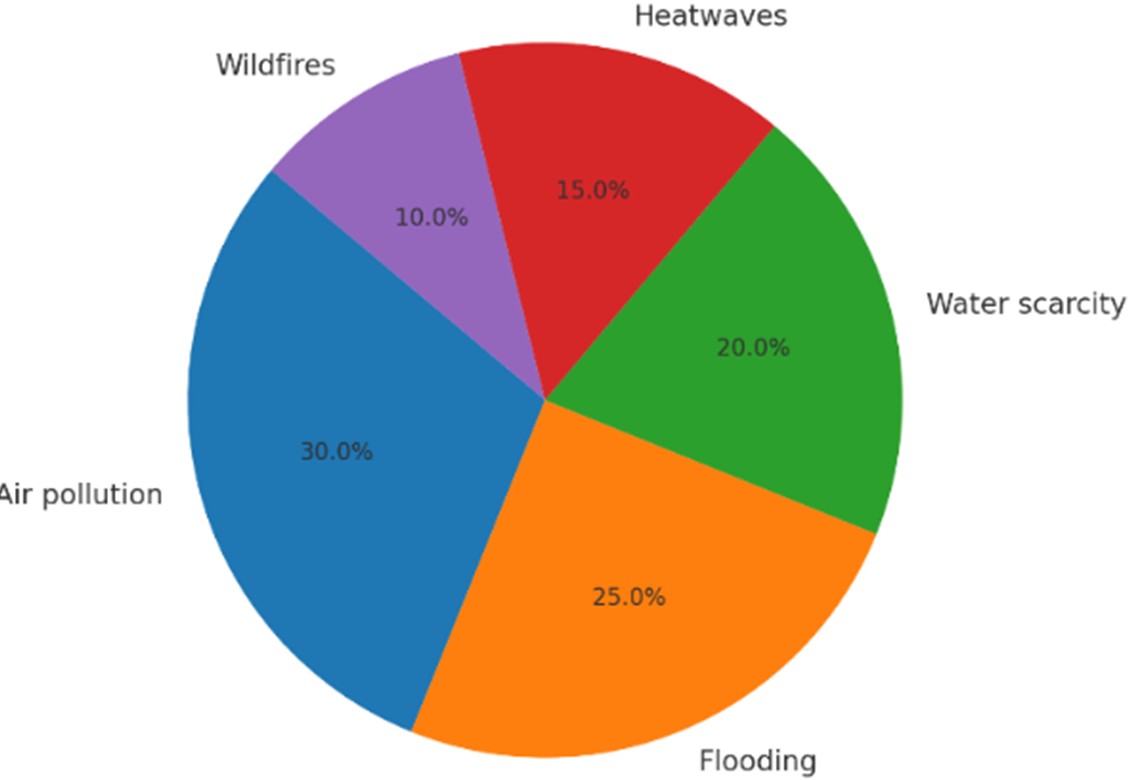Eco-Anxiety Among Youth in the Climate Crisis Era: The Role of Media Exposure, Political Trust, and Perceived Agency
Keywords:
Climate change, Media exposure, Perceived political agency, Mental health, Gender differencesAbstract
This study investigates the psychological impacts of climate change—specifically eco-anxiety—among youth in urban Pakistan, focusing on the roles of media exposure, political trust, and perceived political agency. Drawing on survey data from 1,200 participants aged 15–35 across Lahore, Karachi, and Islamabad, we found that 71% of respondents experience moderate to severe eco-anxiety, with air pollution and flooding identified as the most frequent triggers. A multiple regression analysis revealed that media exposure was the strongest predictor of eco-anxiety (β = .52, p < .001), followed by low political trust (β = -0.31, p < .001) and low perceived agency (β = -0.28, p < .001). Female and younger respondents reported significantly higher levels of eco-anxiety. Our findings suggest that high media consumption on climate-related topics without adequate institutional trust or avenues for political participation may amplify feelings of helplessness. The study contributes to growing literature on climate-induced mental health stressors and underscores the need for inclusive climate communication and participatory governance strategies to buffer eco-anxiety among young populations in the Global South.








